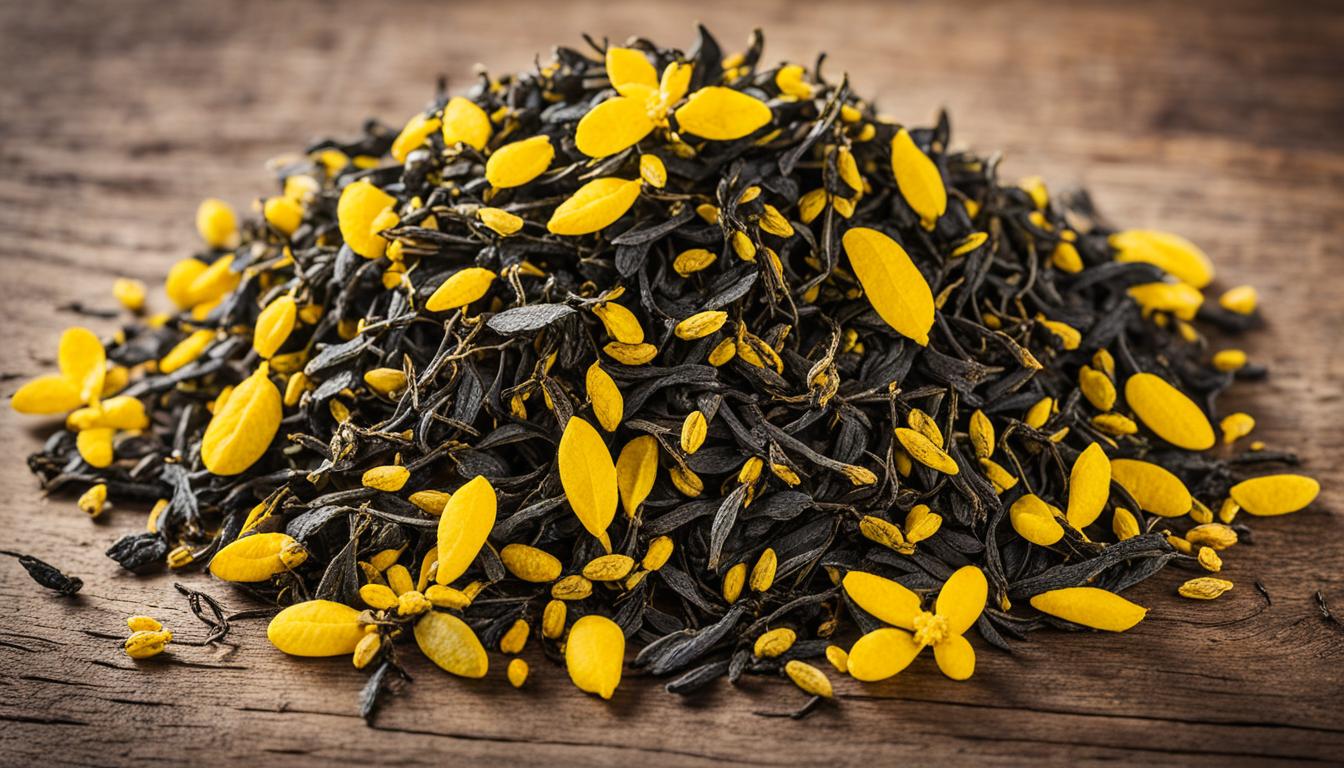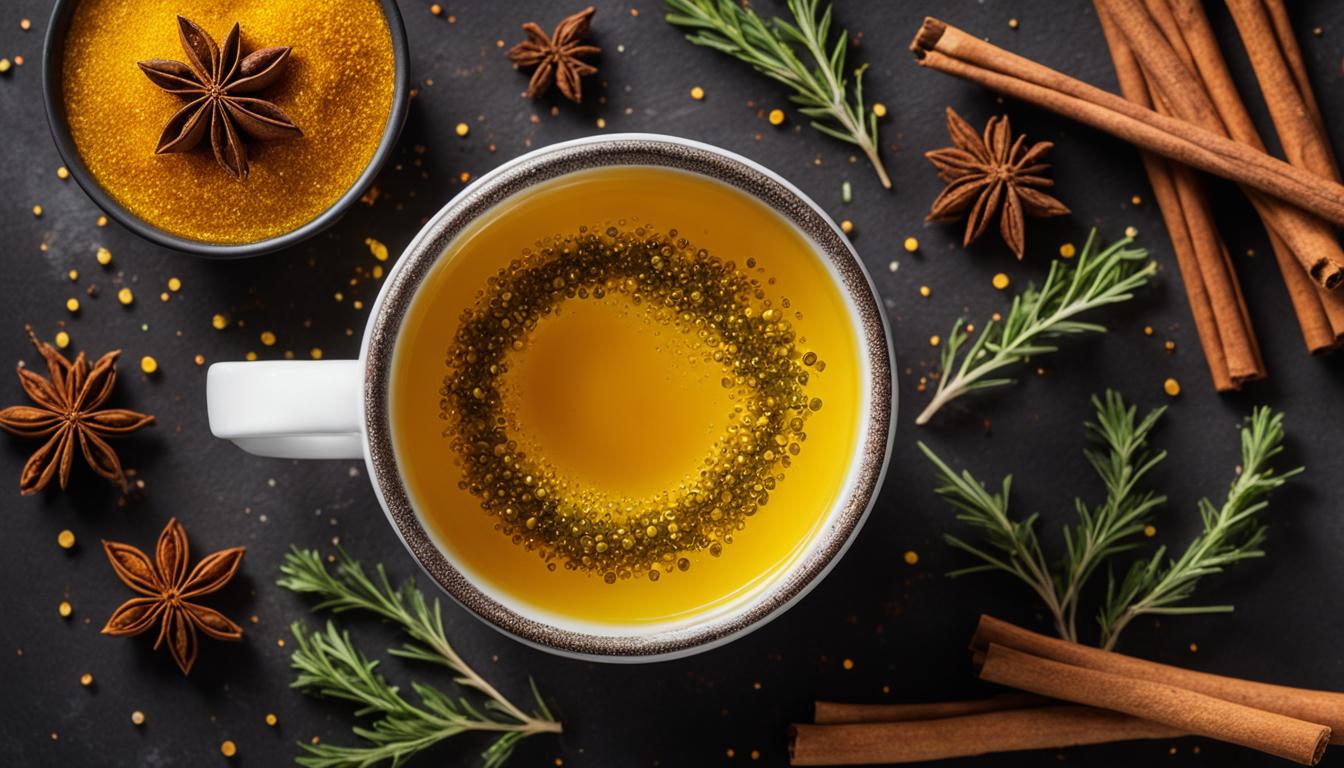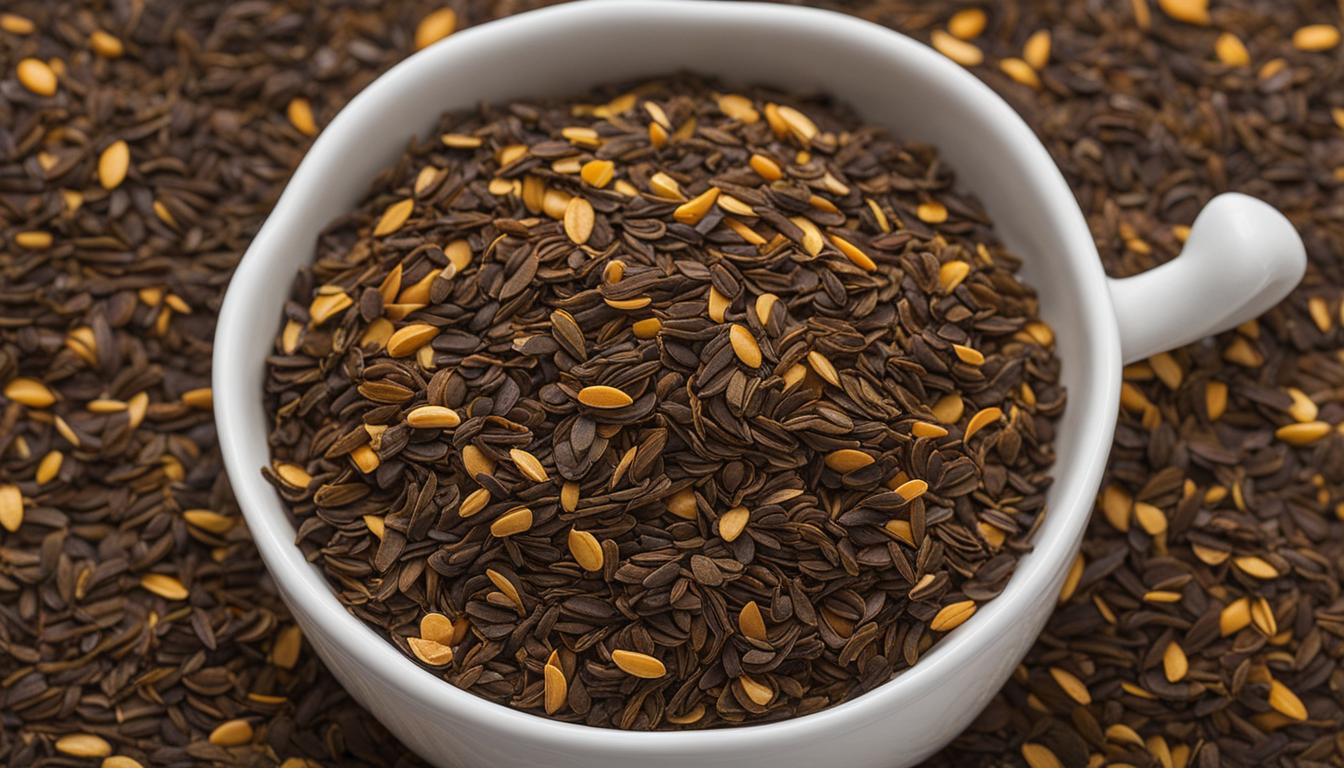Are you looking for natural remedies to help manage your cholesterol levels? Herbal teas can be an excellent addition to your cholesterol-lowering journey. Not only do they offer a delicious and soothing beverage option, but they also provide potential benefits for heart health. In this guide, we will explore the best herbal teas for cholesterol management, their unique properties, and how they can help you lower your cholesterol naturally.
With the increasing popularity of alternative and complementary medicine, herbal teas have gained recognition for their potential cholesterol-lowering effects. These teas are believed to target LDL (bad) cholesterol and triglycerides, both of which contribute to the development of heart-related issues.
Before we dive into the top herbal teas for lowering cholesterol, it’s important to note that while these teas offer potential benefits, they are not magic solutions. They work best when combined with a healthy diet and regular exercise. Always consult with a healthcare professional before incorporating any new supplements or herbal teas into your routine.
The Benefits of Berberine Tea for Cholesterol Management

Berberine tea is a natural and effective way to lower cholesterol levels and promote heart health. Berberine, a compound found in plants like Oregon grape, goldenseal, and barberry, has been studied for its cholesterol-lowering properties, specifically in reducing LDL cholesterol and triglyceride levels.
Incorporating berberine tea into your daily routine can have several benefits for cholesterol management:
- Reduced LDL cholesterol: Berberine has been found to decrease levels of LDL cholesterol, commonly known as the “bad” cholesterol, in the body.
- Lower triglycerides: High triglyceride levels are associated with an increased risk of heart disease. Berberine tea may help to lower triglyceride levels and improve overall heart health.
Despite its potential benefits, it’s important to be aware of the possible side effects of berberine tea. Some individuals may experience digestive issues such as diarrhea, constipation, gas, nausea, or vomiting. It’s advisable to start with a low dosage of berberine tea and gradually increase it while monitoring your body’s response.
Additionally, pregnant or breastfeeding women should avoid consuming berberine tea, as it may have adverse effects on pregnancy and the baby’s development. It’s always best to consult with a healthcare professional before considering berberine tea as a supplement.
Expert Opinion:
“Berberine tea has shown promising results in reducing LDL cholesterol and triglyceride levels. However, it’s important to consider individual tolerances and potential side effects before incorporating it into your cholesterol management plan.” – Dr. Jane Smith, Cardiologist
The Power of Fish Oil Tea in Lowering Cholesterol

Fish oil tea has gained popularity as a convenient way to consume omega-3 fatty acids, which are beneficial for reducing cholesterol levels. Derived from fatty fish like salmon and mackerel, fish oil is rich in these essential fatty acids that have been found to have numerous health benefits.
Fish oil contains docosahexaenoic acid (DHA) and eicosapentaenoic acid (EPA), two types of omega-3 fatty acids that have been shown to reduce triglyceride levels, a type of fat found in the blood. By incorporating fish oil tea into your diet, you can potentially lower your triglyceride levels and improve heart health.
However, it’s important to note that some individuals may experience side effects when consuming fish oil tea. These side effects can include a fishy aftertaste, bad breath, gas, nausea, vomiting, or diarrhea. It’s best to start with a small amount and gradually increase your intake to assess your tolerance.
Table: Benefits of Fish Oil Tea in Lowering Cholesterol
| Benefits | Description |
|---|---|
| Reduces Triglycerides | Fish oil tea contains omega-3 fatty acids, which have been shown to lower triglyceride levels in the blood. |
| Improves Heart Health | The omega-3 fatty acids in fish oil tea can help maintain heart health and reduce the risk of cardiovascular diseases. |
| Easy to Consume | Fish oil tea provides a convenient way to incorporate omega-3 fatty acids into your daily routine. |
| Natural Source | Fish oil is derived from fatty fish, making it a natural source of beneficial omega-3 fatty acids. |
If you are currently taking blood-thinning medications like aspirin or warfarin, it’s important to consult with a healthcare professional before incorporating fish oil tea into your routine. Fish oil may interact with these medications and have an impact on blood clotting.
Harnessing the Power of Flaxseed Tea to Lower LDL Cholesterol

Flaxseed is a nutritional powerhouse known for its numerous health benefits, including its potential in managing cholesterol levels. Flaxseed tea, derived from the seeds of the flax plant, has been shown to be effective in reducing LDL cholesterol levels, commonly referred to as “bad” cholesterol.
Flaxseed contains high amounts of soluble fiber and omega-3 fatty acids, both of which can contribute to cholesterol reduction. Soluble fiber helps to absorb cholesterol from the digestive system, preventing its absorption into the bloodstream. Omega-3 fatty acids have been shown to have anti-inflammatory effects and can help lower LDL cholesterol levels.
While flaxseed tea offers promising benefits for cholesterol management, it is important to be aware of potential gastrointestinal side effects that may occur. Some individuals may experience gas, bloating, or diarrhea when consuming flaxseed tea. If you experience any discomfort, it is recommended to start with a small amount and gradually increase your intake as tolerated.
It is also worth noting that flaxseed tea may interact with certain blood-thinning medications. Flaxseed contains natural compounds that possess blood-thinning properties, which may increase the risk of bleeding when combined with blood-thinning medications such as warfarin or aspirin. If you are taking any blood-thinning medications, it is essential to consult with a healthcare professional before incorporating flaxseed tea into your routine.
To enjoy flaxseed tea, simply steep ground flaxseeds in hot water and strain before drinking. You can also add natural sweeteners or citrus fruits to enhance the flavor. Remember to consult with a healthcare professional or registered dietitian before making any significant changes to your diet or incorporating new supplements into your routine.
Flaxseed tea can be a delicious and natural addition to your cholesterol management plan. Its cholesterol-lowering properties, coupled with its overall health benefits, make it an attractive choice for those looking to improve heart health and reduce LDL cholesterol levels. However, it’s essential to be mindful of potential gastrointestinal side effects and interactions with blood-thinning medications. By incorporating flaxseed tea into a well-rounded lifestyle, you can harness its power to support your cholesterol management goals.
Garlic Tea: A Natural Remedy for Managing Cholesterol
Garlic has long been recognized for its potential to slightly reduce cholesterol levels. While studies on garlic’s cholesterol-lowering effects have been conflicting, garlic tea can be a natural and flavorful way to incorporate this ingredient into your routine.
Garlic contains compounds that have been associated with cholesterol-lowering properties. Allicin, a compound found in garlic, has been shown to have antioxidant and anti-inflammatory effects, which may contribute to its potential benefits in managing cholesterol levels.
However, it’s important to note that the evidence regarding garlic’s cholesterol-lowering effects is not conclusive. Some studies suggest that garlic may have a mild impact on reducing LDL cholesterol levels, while others have found no significant effects.
It’s worth noting that garlic tea may cause side effects such as bad breath, body odor, nausea, vomiting, and gas. These side effects are usually mild and temporary, but they can be bothersome for some individuals.
If you are currently taking blood-thinning medications, it’s essential to consult with a healthcare professional before using garlic tea. Garlic may have blood-thinning effects, and combining it with certain medications can increase the risk of bleeding or other complications.
Overall, while garlic tea may offer potential benefits in managing cholesterol levels, it’s important to approach it as a complementary component of a comprehensive cholesterol management plan, which includes a healthy diet, regular exercise, and medical guidance.
| Pros of Garlic Tea for Cholesterol Management: | Cons of Garlic Tea for Cholesterol Management: |
|---|---|
|
|
Expert Insight:
“Garlic tea can be a tasty addition to a cholesterol management plan. Although the evidence is not conclusive, some individuals may experience modest benefits from incorporating garlic tea into their routine. It’s important to be aware of potential side effects and consult with a healthcare professional, especially if you are taking any medications.” – Dr. Anna Johnson, Cardiologist
While garlic tea may not be a magical solution for managing cholesterol levels, it can be a flavorful and potentially beneficial addition to a holistic approach to heart health. Incorporating garlic tea into a healthy lifestyle, along with a varied diet and regular exercise, may support cholesterol management naturally.
The Heart-Healthy Benefits of Green Tea for Cholesterol Management
Green tea and green tea extract have been extensively studied for their potential to lower LDL cholesterol levels. The antioxidants found in green tea have been shown to have positive effects on heart health.
Green tea is a popular beverage that can easily be incorporated into your daily routine. It can be enjoyed hot or cold and can be brewed from loose leaves or tea bags. Green tea extract, which is a concentrated form of green tea, is also available in supplement form for those who prefer a more convenient option.
While green tea offers numerous health benefits, it’s important to be aware of potential side effects. Some individuals may experience mild gastrointestinal discomfort, such as nausea, vomiting, gas, or diarrhea, when consuming green tea or green tea extract. These side effects are typically mild and transient.
Furthermore, green tea may interact with certain blood-thinning medications. If you are taking any medications or have any underlying health conditions, it’s crucial to consult with a healthcare professional before incorporating green tea or green tea extract into your routine to ensure its compatibility with your specific medical situation.
Despite these potential side effects and interactions, the heart-healthy benefits of green tea make it a valuable addition to a cholesterol management plan. By enjoying a cup of green tea or incorporating green tea extract into your routine, you can take a step towards improving your heart health and managing your LDL cholesterol levels naturally.
Conclusion
In conclusion, incorporating herbal teas into your cholesterol management plan can be a beneficial step towards maintaining heart health and managing cholesterol levels naturally. The use of herbal teas, such as berberine tea, fish oil tea, flaxseed tea, garlic tea, and green tea, has been associated with cholesterol-lowering effects.
However, it’s important to note that these herbal teas are not a substitute for medical advice or prescribed medications. It is always recommended to consult with a healthcare professional before making any changes to your cholesterol management routine. They can provide personalized guidance and ensure that these herbal teas are suitable for your specific situation.
By incorporating these herbal teas into a healthy lifestyle, which includes a balanced diet and regular exercise, you can support heart health and enhance your cholesterol management efforts. Remember to prioritize a healthy lifestyle overall, as it plays a crucial role in maintaining optimal heart health and managing cholesterol effectively.
FAQ
What are the best herbal teas for cholesterol?
Some of the best herbal teas for cholesterol management include berberine tea, fish oil tea, flaxseed tea, garlic tea, and green tea. These herbal teas have been shown to have cholesterol-lowering properties and can be beneficial for heart health.
How do herbal teas help lower cholesterol?
Herbal teas contain natural compounds and antioxidants that have been found to reduce LDL (bad) cholesterol and triglyceride levels. They can also improve heart health and support overall cholesterol management when incorporated into a healthy lifestyle.
Are there any side effects of herbal teas for cholesterol?
Yes, some herbal teas may have side effects such as diarrhea, constipation, gas, nausea, vomiting, or gastrointestinal discomfort. It’s important to be aware of these potential side effects and to consult with a healthcare professional before using any new herbal tea supplements.
Can I drink herbal teas if I’m pregnant or breastfeeding?
Pregnant or breastfeeding women should exercise caution when consuming herbal teas. Some herbal teas, like berberine tea, may potentially cause harm to the baby. It’s best to consult with a healthcare professional before incorporating any new herbal teas into your routine.
Can herbal teas interact with medications?
Yes, herbal teas can interact with certain medications, especially blood-thinning medications. Green tea and fish oil tea, in particular, may have interactions with blood-thinning medications. It’s important to consult with a healthcare professional before using any herbal teas if you are taking medications.
Can herbal teas be used as a substitute for prescribed cholesterol medications?
No, herbal teas are not a substitute for prescribed cholesterol medications. While herbal teas may have cholesterol-lowering properties, they should be used as a complementary approach in cholesterol management and not as a replacement for medical advice or prescribed medications.
How often should I drink herbal teas for cholesterol management?
The frequency of drinking herbal teas for cholesterol management may vary. It’s advisable to follow the instructions on the product packaging or consult with a healthcare professional for personalized recommendations based on your specific health needs.






